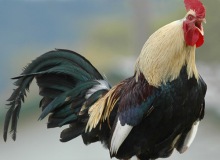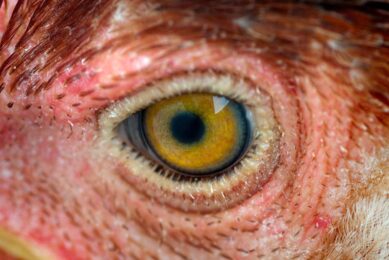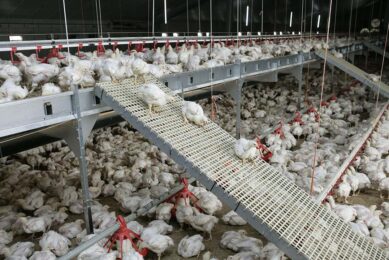Old roosters still dominate sexual pecking order

Old roosters can still dominate, even when their ability to fertilise eggs drastically declines, new research has shown.
A study of feral chickens, reported in Current Biology, suggests an evolutionary battle between what’s good for old roosters and what’s good for their hens – which would benefit from sex with younger, more potent males.
The team, led by Oxford University researchers, studied the relationship between the status of male birds, their reproductive performance, and female reproductive success, in a feral population of chickens in Sweden.
“We found that roosters decline in a number of key reproductive traits as they age – from libido to sperm quality – and, in groups where there’s intense competition, tend to lose out to younger males,” said Dr Tommaso Pizzari of Oxford University’s Department of Zoology, an author of the report. “However, old males remain capable of dominating the pecking order. When this happens they can monopolise access to females but, because of their sexual decline, they fail to fertilise all the eggs available. This implies an evolutionary conflict between ageing roosters and fertile hens.”
The researchers used 4 different experiments to separate out the influence of male and female factors on reproductive success – something that is difficult to study in wild animals. It is only recently that scientists have started to understand the significant role that age-related ‘sexual decline’ (reproductive senescence) plays in natural animal populations.
“In evolution there are many battlegrounds, but nothing is more important than successfully reproducing. So, for hens, being monopolised by an impotent old rooster who will cause them to lay many infertile eggs is a disaster and amounts to a declaration of war. Our study shows that this sort of sexual decline is an engine driving sexual conflict in animals,” said Dr Rebecca Dean of Oxford University’s Department of Zoology, also an author of the report.
A report of the research, ‘Male reproductive senescence causes potential for sexual conflict over mating’, is published in the 13 July issue of Current Biology.
The research was carried out by Dr Tommaso Pizzari, Dr Charlie Cornwallis, and Dr Rebecca Dean of the Department of Zoology at Oxford University, Dr Hanne Løvlie of the University of Stockholm, Sweden, Dr Kirsty Worley of the Department of Zoology at Oxford University and the University of East Anglia, and Dr David Richardson of the University of East Anglia. The Oxford researchers were supported by the UK’s Natural Environment Research Council.
Source: University of Oxford
Join 31,000+ subscribers
Subscribe to our newsletter to stay updated about all the need-to-know content in the poultry sector, three times a week. Beheer
Beheer








 WP Admin
WP Admin  Bewerk bericht
Bewerk bericht